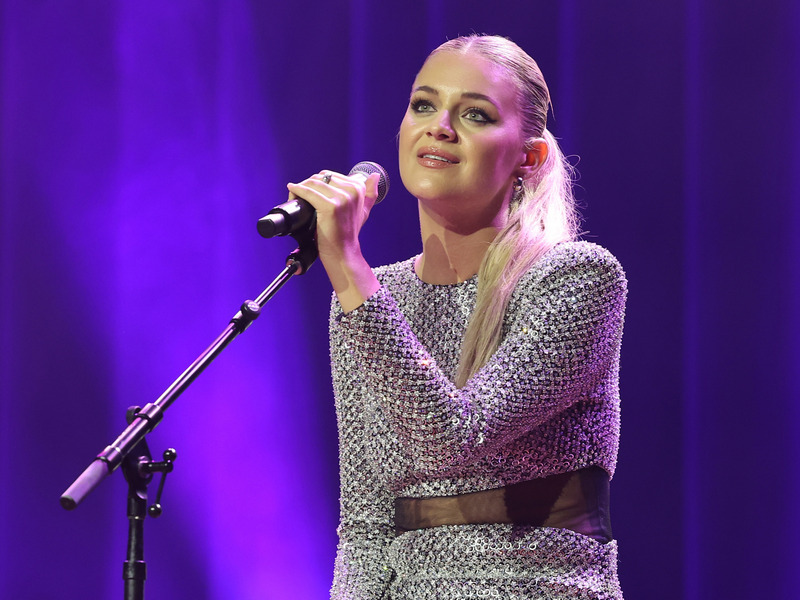By Jimmy Hyams
It was a night for nostalgia. A night for fond memories. A night to honor three of the greatest legends in SEC football history.
The storied Lyric Theater in Birmingham was host Tuesday night to a preview of Saturdays in the South, an eight-part ESPN documentary of SEC football that will air in early September.
Steve Spurrier, Archie Manning and Herschel Walker were the honorees and stole the show on the screen and during a post-preview interview session with the SEC Network’s Laura Rutledge.
Spurrier was his usual witty and confident self.
When Rutledge said Spurrier brought Florida back to prominence, Spurrier interjected: “Back!’’
Spurrier didn’t bring Florida back to prominence. He brought Florida to prominence. The Gators had not won an SEC title in 51 years until Spurrier arrived in Gainesville in 1990.
His first season, Florida had the best record in the SEC but was on NCAA probation and not eligible for the conference title. Then, he won seven SEC titles in 11 years, a dominance that rivaled the great Bear Bryant in the 1980s.
Spurrier said the Gators were loaded in 1990, having placed No. 3 in the nation in defense in 1989.
“All they needed was someone to say, `You’re as good as anybody,’ and they needed someone to say, `This is how,’’’ Spurrier said.
“Coaches that say they’ve got to change the culture and get my own players, that’s a bunch of B.S.’’
Spurrier said he almost went to Ole Miss as a quarterback and might have become a Rebel if the NCAA had a February signing day. Instead, Florida and coach Ray Graves came calling in January and Spurrier picked the Gators.
“All good things that happened to me in sports were because of that first decision,’’ Spurrier said.
There was little doubt Manning was going to Ole Miss. A four-sport athlete from Drew, Miss., Manning was a Rebel fan at a young age, although his father liked Ole Miss and Mississippi State and proclaimed his favorite SEC player was Tucker Frederickson of Auburn.
After Manning starred on Ole Miss’ freshman team – freshmen weren’t allowed to play varsity ball then – Manning returned to find that his father, struggling in business and not in good health, took his life with a shotgun.
Manning was going to drop out of school to help the family but was talked into staying at Ole Miss.
Interestingly, the game that put Manning on the national map was a 33-32 night-game national TV loss at Alabama in which Manning set an SEC record with 540 total yards. He was so brilliant in defeat, Ole Miss’ football office got 5,000 congratulatory letters.
“It’s hard to believe it’s been 50 years,’’ Manning said.
It’s been almost 40 years since Herschel Walker burst onto the college scene, running over Tennessee’s Bill Bates in a season-opening 16-15 win at Neyland Stadium and leading the Bulldogs to their first national championship since 1942.
In Georgia’s 17-10 Sugar Bowl win over Notre Dame to clinch the national title, Walker suffered a separated shoulder on his second carry and returned to gain 150 yards, rushing over 30 times after the injury.
“I didn’t go to New Orleans to dance,’’ Walker said. “I came to play.’’
It was soon after Walker’s brilliant Sugar Bowl game that Archie’s oldest son, Cooper, suggested that the family name the third son Herschel Walker Manning. Cooper was overruled. The newborn was named Eli.
When Rutledge asked Walker how tough it was to play with a separated shoulder, Walker noted that Manning returned in 1970 to play the last few games of his senior season with a broken left arm.
Waker offered this insight: “People think I’m nice, but if you show up against Herschel Walker, you’re gonna lose.’’
Spurrier brought that same swagger, that same mindset to Florida nearly 30 years ago. But it was Spurrier’s mouth that turned off Walker.
“I didn’t like Spurrier because he said negative things about Georgia,’’ Walker said.
Spurrier once said you like to play Georgia early in the season because they always had players suspended. But Georgia wasn’t his only whipping boy. He took dead aim at Tennessee, saying you can’t spell Citrus without a U and a T. The Citrus Bowl then was usually reserved for the SEC runnerup.
Spurrier also proclaimed Tennessee the Knox County champs the year the Vols lost to Florida and Memphis in 1996. And he said when Peyton Manning decided to return to UT for his senior season that Peyton could be a three-time MVP of the Citrus Bowl.
Archie Manning and Walker both grew up in small towns. Archie said Drew was like Mayberry. Walker said there wasn’t much to do in Wrightsville, Ga.
“If you got one year to live,’’ Walker said, “move there because it will last forever.’’
While Manning and Walker had distinguished NFL careers, Spurrier did not – even though he was the 1966 Heisman Trophy winner. But he took a route most star players don’t: He went into coaching.
Spurrier is only the fourth person in the College Football Hall of Fame as a player and a coach.
And while he played on very good Florida teams in the 1960s, he didn’t learn to coach while at Florida or under one of the all-time greats like Bear Bryant or Bo Schembechler.
“I learned to coach at Duke,’’ Spurrier said, because the Blue Devils weren’t blessed with great personnel. “You had to learn how to do things differently. You had to learn to do things with less talent.’’
Spurrier learned to do it with less talent. And he learned to do it with superb talent.
That’s why Spurrier is one of the all-time great coaches in the SEC.
Manning was one of the all-time great quarterbacks in the SEC, making the all-SEC half-century team.
And Walker is arguably the best running back in SEC history. He still holds the league career rushing record despite playing just three seasons.
What did the SEC teach Walker?
“It taught me to be a man, a good person,’’ he said. “The SEC is my life.’’
SEC fans will be able to see the eight 90-minute documentaries starting Sept. 2.
Set your DVRs.
You don’t want to miss this.
Sponsored by Big Kahuna Wings: The wings that changed it all




















